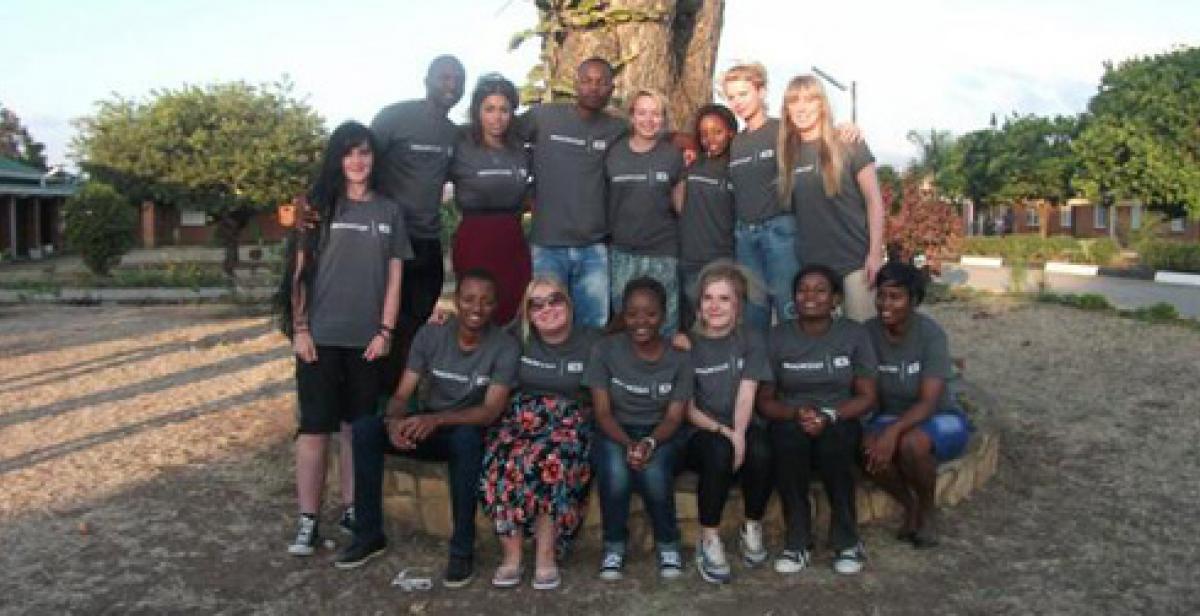We kicked our first day of orientation off with a sunrise-lit jog down the dirt road outside the gates of our commune, to a view of mountains silhouetting before a rapidly warming glow. A welcome icy bucket bath later we arrived at the circle seated room, notebooks open and pens poised. Mr Mark (Progressio Zimbabwe Logistics Officer) welcomed us kindly and wasted no time in mingling the national and international volunteers from DOMCCP, Restoration of Hope and Simukai to catalyse the bonding and team-building process between us all.
The national volunteers from Bulawayo, team Restoration of Hope, sang a beautiful acapella number to unite us on the start of our journey. A national volunteer then whispered to me, over the applause, that the Bulowayans are known for their singing talents.
We recapped what we’d learned during our training weekends, such as the 7 principles, i.e. solidarity, commitment to development in the community and living as an active citizen after our placement. Following this we were given tools in team planning to help with the upcoming paperwork necessary to begin our activities.
Day 2 saw our revision of the all-important Theory of Change; action and reaction, teaching and learning, short-term, long-term and impact effects of our work during our respective placements. Representatives of DOMCCP and Restoration of Hope both gave overviews of their work and objectives including raising HIV/AIDs awareness and the harnessing of resources into viable business endeavours for impoverished families.
On day 3 the UK Volunteers tried to return the gift of music presented to us on day 1 of orientation using a fiddle, whistle and (extremely) amateur group of singers to render Amazing Grace, after which our orientation host reminded us how therapeutic it should always be for us to sing. Then we explored the requirements for risk assessments and ways to stay safe and healthy during our stay. Following these reminders we explored the difference in culture between Zimbabweans and the British including; marriage and courtship, and the roles of men, boys, women and girls. One memorable observation is that both cultures similarly anticipates the man in a relationship to propose marriage, and differently that the care of children and household chores in British culture are shared between men and women, where in Zimbabwe most domestic responsibilities fall on the women. After each session of orientation we congregated with our Simukai national team to partake in team-building activities, such as volleyball, football and parachute games, and after the swapping of ICS t-shirts, giggles and photographs we parted in the evenings, more content for knowing each other better with each day of orientation.
Writen by Simukai volunteers



